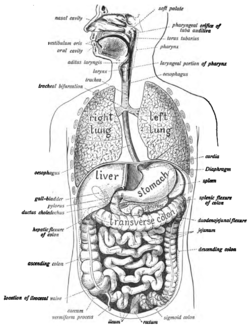In this unit, we learned about diabetes, obesity, and how the various systems in our body are affected depending on how often we consume food. When our body doesn't receive enough energy from food for long periods of time, it relies on adipose storage and eventually muscle tissue; this shows that constantly skipping meals can be problematic for the body. Yet, eating too much can be detrimental to one's health as well. Obesity is the primary cause to numerous diseases such as Type II diabetes, which affects almost 8% of the population. Unfortunately, diabetes increases one's chance of heart disease or stroke and can cause kidney disease and amputations. We also learned about some of the body's systems, including the endocrine, digestive, and lymphatic system. For instance, the lymphatic system is responsible for protecting the body from foreign cells, absorbing lipids, and recovering fluids.
I found the lecture on fuel metabolism to be quite challenging because it was difficult memorizing what happens in each of the three states and the functions of the various organs and hormones because there were a lot of important details. On the other hand, I felt that the endocrine system was easier for me because a lot of the terms were already used in the unit or in previous units.
